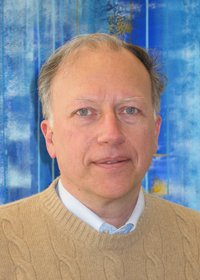Science Team

Corner Bertha Street & Jorissen Street
Braamfontein
Johannesburg, Gauteng, 2001
Republic of South Africa
Email: Click here
Michel M. Verstraete
Visiting Professor, The University of the Witwatersrand, South Africa
Michel M. Verstraete received his 'License en Physique' (1974) from the Université Catholique de Louvain in Louvain-la-Neuve, Belgium, his 'License Spéciale en Géophysique' (1976) from the Université Libre de Bruxelles, Belgium, and both his M.Sc. in Meteorology (1978) and D.Sc. in Atmospheric Sciences (1985) from the Massachusetts Institute of Technology (MIT) in Cambridge, MA, USA. He worked at the World Meteorological Organization (WMO) in Geneva, Switzerland and the United Nations Environment Programme (UNEP) in Nairobi, Kenya from 1979 to 1981, and at the National Center for Atmospheric Research (NCAR) in Boulder, CO, USA from 1982 to 1989. He taught at the University of Michigan in Ann Arbor from 1989 to 1990, and worked at the European Commission's Joint Research Centre (JRC) in Ispra, Italy from August 1990 to August 2013. He served as Chief Scientist of the Earth Observation Directorate of the South African National Space Agency (SANSA) from October 2013 to March 2016, and as Visiting Professor in the Global Change Institute (GCI) of the University of the Witwatersrand since September 2014. Michel has been a member of the MISR science team since 1995 and has contributed to various other space missions (e.g., MODIS, MERIS, Vegetation, Meteosat, GLI). He was a member of the Atmospheric and Terrestrial Panels of the Global Climate Observing System (GCOS) and served on the Steering Committee of that organization. His initial work on topics such as the modeling of atmosphere-biosphere interactions and desertification led him to pursue the exploitation of satellite remote sensing data for the quantitative characterization of terrestrial surface properties. In his current academic position, he is promoting the exploitation of space-based assets to support the sustainable development of South Africa and its neighbors, and engaged in scientific lecturing and capacity building in that region.